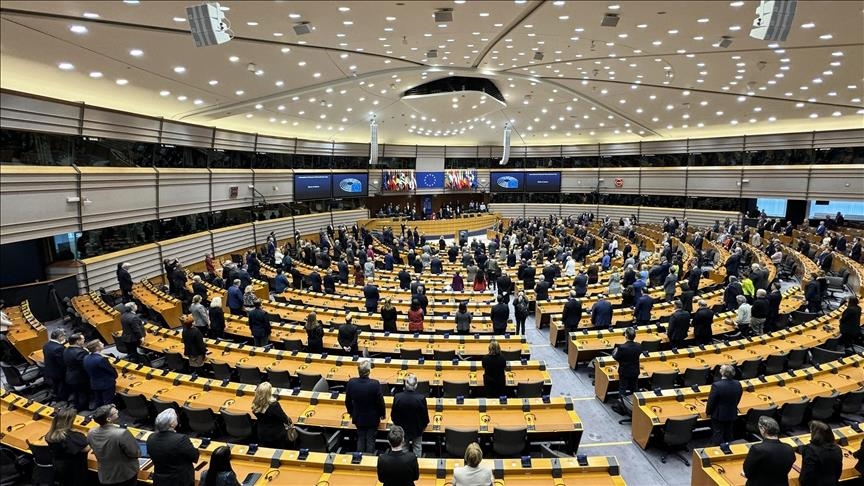European Parliament session begins with Srebrenica tribute, delivers strong messages on Gaza
'We must prevent the ongoing genocide in Gaza,' Dutch MEP says

BRUSSELS
The European Parliament opened its full session Monday with a ceremony commemorating the 30th anniversary of the 1995 Srebrenica genocide, while delivering urgent calls for action amid ongoing violence in Gaza.
"This week marks 30 years since the Srebrenica genocide, where thousands of Bosnian Muslims were murdered or disappeared and tens of thousands more were forcibly expelled from the enclave," said European Parliament President Roberta Metsola. "Tragically, many victims remain unidentified."
Addressing the survivors present at the ceremony, she added: "This house honors you and all survivors, just as we continue to keep the memories of the victims alive. In the words of the Srebrenica prayer recited every year, 'May mothers' tears become prayers that Srebrenica never happens again'."
During the commemorative session, several MEPs took the floor to stress Europe's failure to prevent the genocide and called for more decisive actions to prevent future atrocities.
Matjaz Nemec, a Slovenian MEP from the Socialists and Democrats (S&D), drew a parallel to current events in Gaza. "Yet today, Europe is feigning ignorance again. The name of which Palestinian town will have to be written in blood in history books of our humanity for us to move from words to action?"
Tineke Strik, a Dutch MEP from the Greens group, also stressed the need to draw lessons from Srebrenica. "We bear a heavy responsibility to learn from this failure, and we must therefore prevent the ongoing genocide in Gaza."
Srebrenica genocide
In the spring of 1993, the UN Security Council declared the city of Srebrenica a "safe area." Serb troops, however, overran the zone, led by Gen. Ratko Mladic, who was later found guilty of war crimes, crimes against humanity, and genocide.
Dutch troops responsible for safeguarding those in the UN zone failed to act when Serb forces occupied it on July 11, killing 2,000 men and boys in a single day.
Approximately 15,000 Bosniaks fled to the surrounding mountains, but Serb troops hunted them down, killing an additional 6,000 people.
Serb forces allowed women and children to reach Bosnian-controlled regions but massacred at least 8,372 men in forests, factories, and warehouses. The murdered Bosnians were buried in mass graves, with bodies discovered in 570 different locations across the country, including 77 mass graves.
In 2007, the International Court of Justice at The Hague ruled that genocide had been committed in Srebrenica.
Efforts to locate the missing victims of the genocide have continued, with identified remains buried at the Potocari Memorial Cemetery.
On June 8, 2021, UN tribunal judges upheld a life sentence for Mladic for genocide, persecution, crimes against humanity, extermination and other war crimes committed in Bosnia and Herzegovina.








